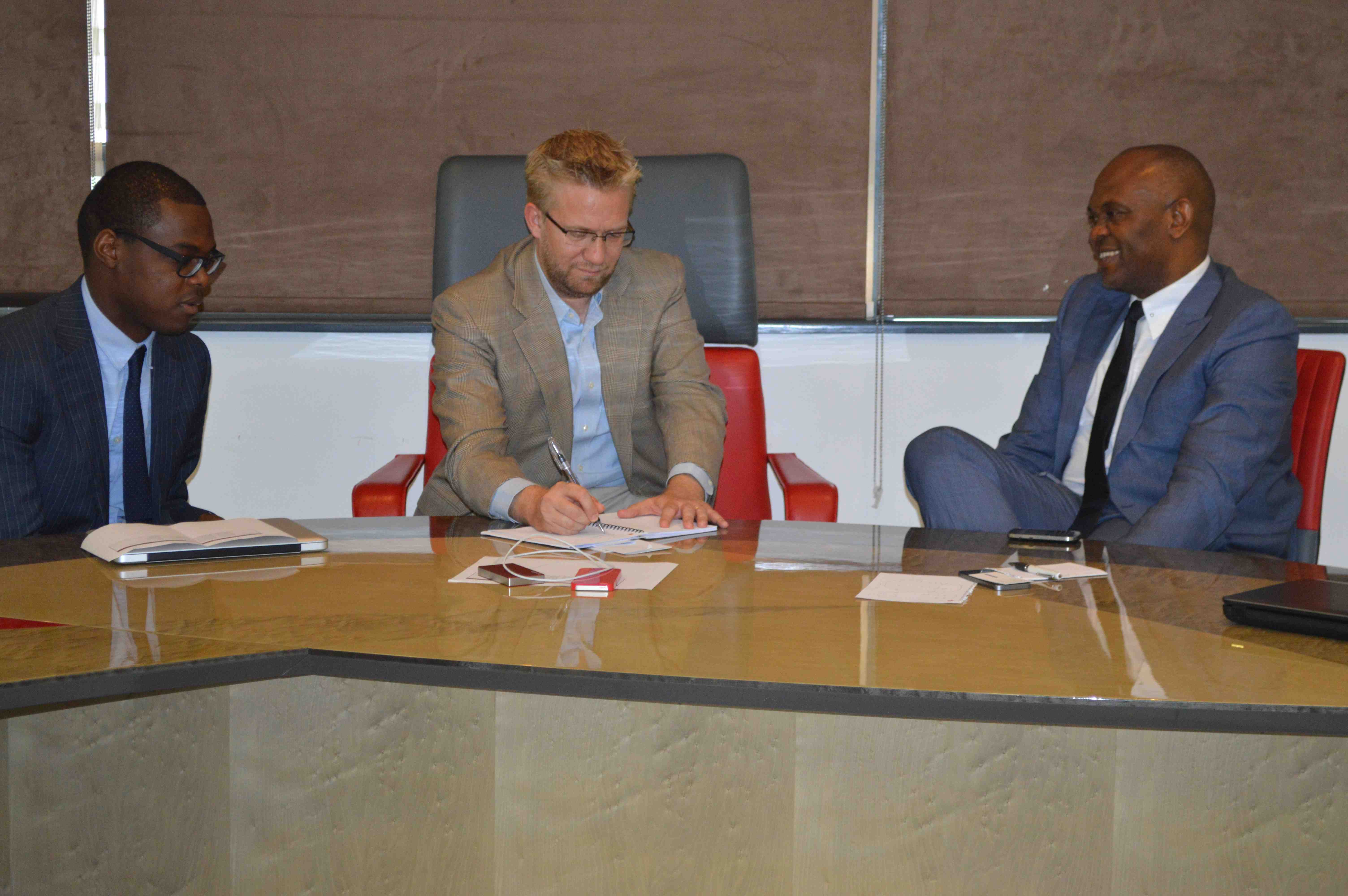7 things you need to know about the Elumelu Nigeria Empowerment Fund

From left to right: Jean Yves-Mutanda, Elumelu Professionals Programme 2014 associate; Dr. Wiebe Boer, CEO of The Tony Elumelu Foundation; and Tony O. Elumelu, CON Founder of The Tony Elumelu Foundation, at the Elumelu Professionals Programme presentations.
Billionaire philanthropist Tony O. Elumelu launched last month a $9 million fund directed to uplift communities affected by conflict and natural disasters across his native country Nigeria.
The event was well-covered by the media and the Nigerian government even pitched in with a generous donation, but now that the dust has settled, it’s time to figure out how the Elumelu Nigeria Empowerment Fund will work when it becomes fully operational in 2015.
Funded and managed by The Tony Elumelu Foundation, the fund hopes to make the communities it will serve economically sustainable by giving them access to startup funding and building their capacities to create a platform for a thriving entrepreneurial environment.
But this is easier said than done. Dr. Wiebe Boer, the foundation’s CEO, is the first to admit they are still in the early stages of the initiative and in the process of identifying the first set of communities to support, although he did provide a snapshot of where he would like them to be a few months from now.
Boer gave us a sneak peek into seven things you should know about the fund.
1. Access.
It depends on the selected community and its needs. Following a needs assessment, the fund will decide whether it should pursue the project on its own or seek an external partner, which can be a local community group, or a national or international development organization. In the latter scenario, the fund will be putting up a call for proposals, and Boer said they will “heavily focus on organizations that we know, are strongly recommended to us, or those we can truly see have the capacity.”
2. Priority sectors.
Projects can range from tackling environmental and social welfare issues, to rebuilding or reviving broken infrastructure. However, Boer expects the bulk of the fund’s work to center on entrepreneurship, whether building an enabling environment that would allow entrepreneurs to operate or providing them with startup capital to get their business to take off. The fund, he noted, will not be doing emergency response or support immediate post emergency work.
3. How it will operate.
At present, the fund will only work in specific communities in Nigeria, those that have emerged from conflict or disaster but continue to experience slow development progress and economic difficulties like in the Niger Delta, although communities are still being selected in the current phase. The foundation chief said there are plans to expand outside the country, but at present they aim to “test and refine the model in Nigeria.”
4. Types of support the fund will provide.
The fund plans to operate in the long term and be self-sustaining over the next couple of years instead of relying on donations and contributions, and will therefore focus on giving grants as well as impact investments.
“If we make an impact investment in an entrepreneur in a business in these communities, then that would become sort of assets for the fund,” Boer explained.
This strategy is closely linked to the Foundation’s approach to give grants to startups that tackle particular development challenges through technology and invest in select businesses operating in Africa that educate about impact investing and create opportunities for budding entrepreneurs.
5. Other assistance.
Next month, the foundation plans to announce a new program that will provide mentorship, networking opportunities and training to entrepreneurs to help them become “better business leaders,” Boer said. This is in line with Tony O. Elumelu’s vision to support African entrepreneurship, but at the same time complements the fund’s technical capacity building activities. “We use what’s done really well in one part of the foundation to kind of benefit what’s done elsewhere,” he added.
6. How the fund will determine if objectives are being met.
The fund will put in place proper monitoring and evaluation measures over time. “We’ll be monitoring and so on according to what the baseline was, or the community needs, or when we started, and then see how progress has been done against that,” Boer noted.
“[And] because [we may be doing] some of our own projects, it’s better not to be auditing ourselves. So we’re going to seek external expertise in this area to kind of help with that, and make sure everything is being delivered at the highest standard of excellence as possible,” he added.
7. Independence.
At the launch, the Elumelu Nigeria Empowerment Fund received a generous 250 million Nigerian naira ($1.5 million) donation from President Goodluck Jonathan, who is running for re-election in February.
While the fund is grateful for the contribution, it doesn’t believe it comes with strings attached, according to Boer, who added: “It’s basically just the government providing their support in the effort that we’re trying to lead.”
Original article on Devex.com
